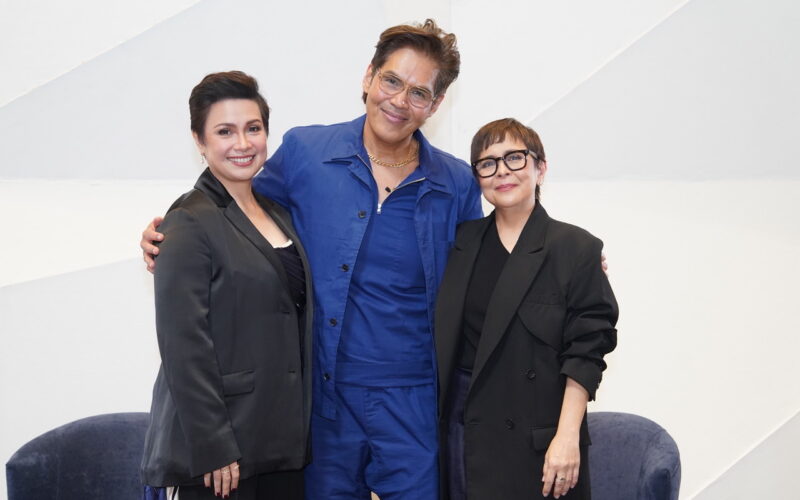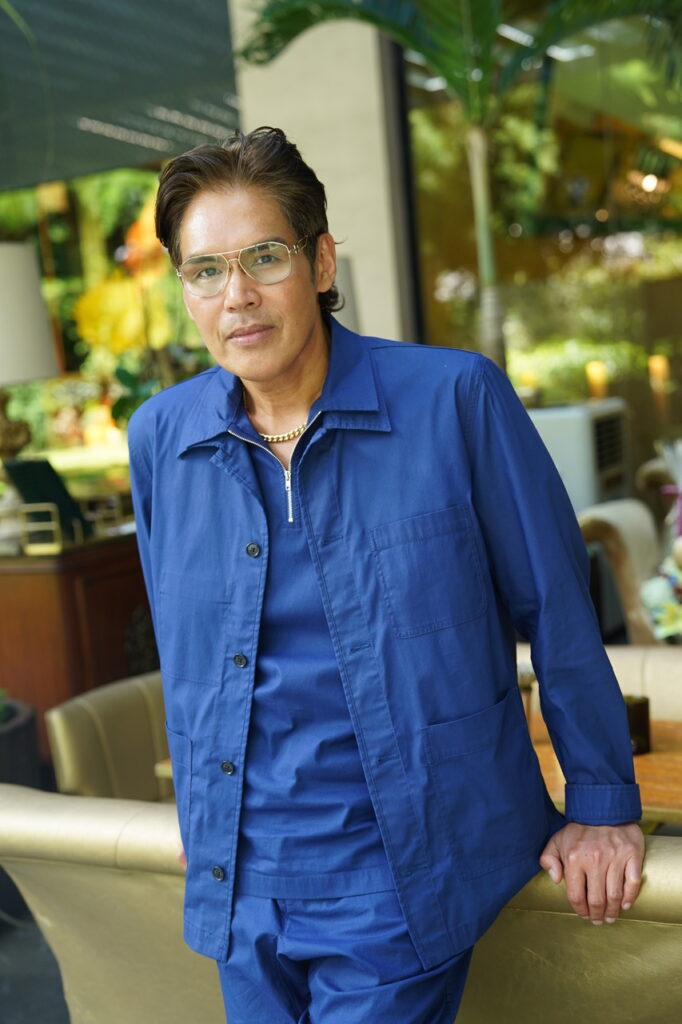The award-winning US-based Filipino-American costume and set designer and producer reveals why they chose a certain profession as the backstory behind the wordless play’s lone female character.
By Alex Y. Vergara
From a “discofied” retelling of former Philippine First Lady Imelda Marcos’ life in Here Lies Love to the adaptation of Franz Xaver Kroetz’ wordless one-woman play Request Program, multi-awarded Filipino-American set and costume designer, and producer Clint Ramos has done it all.
But the public’s verdict on the latter remains to be seen, as Clint and his collaborators, most notably director Bobby Garcia, have yet to see how local audiences would react to Request sa Radyo, Koretz’ reimagined play that, this time around, tries to capture the loneliness and isolation of a Filipino woman working abroad to be alternately played by Lea Salonga and Dolly de Leon.
They won’t have to wait long though to find out, as the critically acclaimed play will premiere on Oct. 10 at the Samsung Performing Arts Theater (SPAT) in Makati.
It was already early August when Clint sat down with a group of journalists to introduce himself and share the latest developments on their homegrown efforts, which also involves Chris Mohnani, a former US-based professional dancer and arts administrator, who’s now the managing director of SPAT, which is fast becoming one of the country’s centers of the performing arts. But they’re far from finish yet, said Clint.
Since there’s no dialog involved, the trio of Clint, Bobby and Chris, apart from the built-in cache automatically provided by the two critically acclaimed actresses alternately playing the lead role, are also relying on atmospherics through an immersive set to move the story. How immersive?
“I think it’s safe to say that Clint and Bobby wanted the entire experience to start as soon as you set foot inside the theater,” Chris said. “So once the doors open, the immersion already starts.”
Theater buffs who’ve seen various versions of Request Program staged abroad are bound to see the play in a new light, thanks to Bobby and Clint’s decision to Filipinize it through its lead character and the imagined turmoil going through her head, as only a fellow Filipino could fully relate to and empathize with.
“This is the first time I’m actually doing the show,” Clint said. “But I’ve seen different versions of it.”
Apart from the New York staging, where the play originated, Clint has seen the play staged in Poland and Colombia. Since it was a wordless play, no translations and deductions on the audience’s part were necessary. But despite the 75-minute play’s universal appeal, each staging managed to remain fresh and unique in Clint’s eyes since people behind them were given the liberty to tweak their respective versions.
The play may be wordless, but it’s not all silent, as the main character, a woman, listens to the radio and through subtle gestures, movements and changes in her facial expression convey a gamut of emotions without uttering a single word. Therein lies the challenge.
“I’ve seen it staged several times by different people in different countries, and every time I see it, I’m still transfixed,” said Clint.
While certain productions had their lead actresses playing such characters as a factory worker and a government employee, Clint and his collaborators agreed that their adaptation would revolve this time around on an overseas-based Filipino nurse—tired, most likely overworked, lonely, isolated, and with her mind perhaps a million miles away as she thinks of her family and friends, and her old life back home.
In much the same way, Clint, being an immigrant himself in the US, is able to relate to what was going through the lead character’s mind. Not only did he have to reexamine his roots as a Filipino, but he also had to do a bit of research on how the Philippines as a nation became identified with the medical profession, particularly the nurturing discipline of providing and, in Clint’s words, “exporting” care for others.
“One of the fascinating tidbits that I learned is that the profession of nursing (in the Philippines) really started during the Spanish-American War, when the Americans who were fighting Filipinos ran out of American nurses to treat their wounded,” Clint shared.
“So they trained all of these Filipinos to become their nurses. I thought that was so profound when you have these Filipina nurses nursing Americans who are fighting Filipinos. Then that started all the American nursing schools in the early 20th century that just basically really catapulted the practice all the way.”
And this passion for the profession, perhaps unmatched by any other group or nationality, continues to this day. In the US, for instance, said Clint, around 60 percent of the nurses who died during the first and deadliest wave of the COVID-19 pandemic were Filipinos. How come?
“Because Filipino nurses never said no when they were reassigned to the emergency rooms. Even if they were already in pediatric or whatever, they wouldn’t say no to the transfer. They would just say yes,” he added.
And that inability to say no eventually catches up on you. That and the utter loneliness the lead character is most likely feeling in Request sa Radyo make for an interesting character study. Therein lies the love. Therein also lies the challenge.







